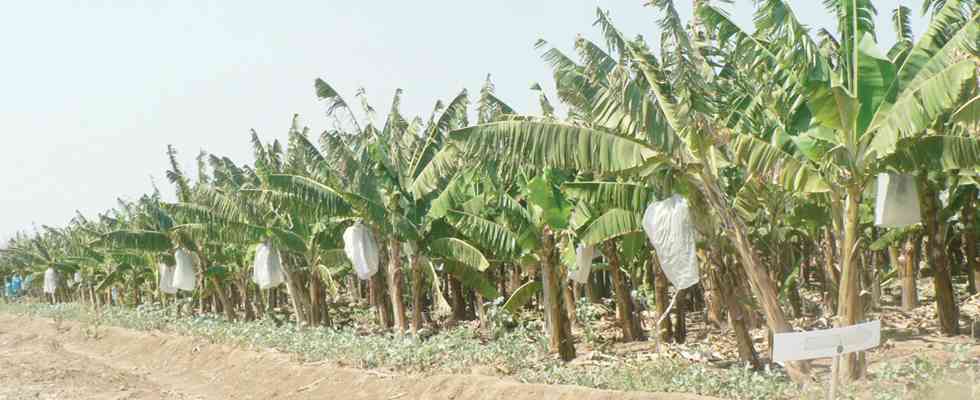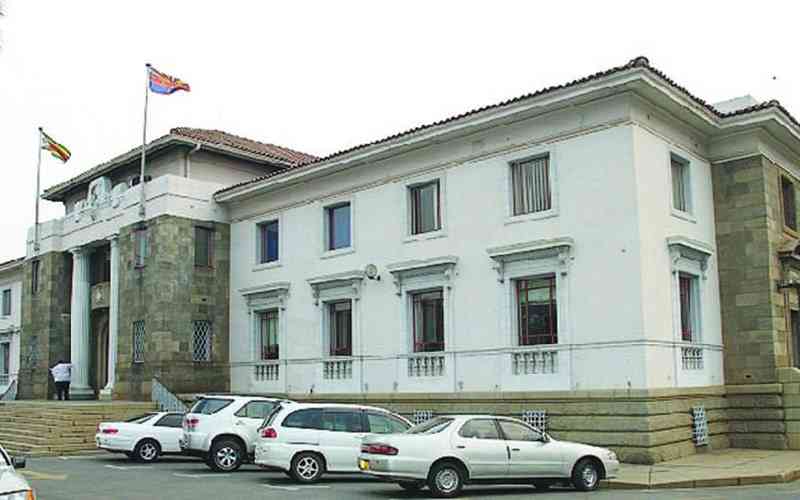
MOSES Samanga (65), a banana farmer, surveys his once-thriving field, now ravaged by the relentless effects of climate change.
The usually lush green landscape has withered, leaving behind a barren expanse of dry, lifeless plants.
For decades, Samanga’s four-hectare farm was the backbone of the local community, providing employment opportunities for youths and a steady supply of fresh bananas to markets.
However, the past few seasons have brought nothing, but despair.
“The rains have become more unpredictable and the heat is unbearable,” lamented Samanga.
“My banana crop is wilting and I am counting significant losses.”
Climate change has altered the region’s weather patterns, leading to erratic rainfall.
There have been increased temperatures and prolonged droughts in Zimbabwe.
- Climate change devastates banana farmer’s livelihood
Keep Reading
These changes, for this year, caused by El Niño-induced drought have decimated Samanga’s banana harvests, leaving him struggling to make ends meet.
The ripple effects of Samanga’s struggling field extend far beyond his own family.
The community, once supported by employment opportunities at his farm, now faces reduced job prospects for youths, decreased access to fresh produce and economic instability.
“Youths used to work on my field, earning a living and gaining skills. Now, they are left with nothing,” he said.
Samanga’s field was more than just a business, it was his legacy.
He invested years of hard work and dedication in building a thriving agricultural enterprise.
“I have farmed bananas all my life. It is heartbreaking to see everything fall apart,” he reflected.
The farmer is, however, left with no option except to adapt to the changing climate.
“I am now exploring drought-resistant crop varieties. I am also looking at irrigation systems and climate-resilient farming practices,” he revealed.
“However, these innovations require significant investment and my greatest fear is that I do not have the resources to recover.”
As the effects of climate change continue to devastate communities like Honde Valley, it is clear that urgent action is needed.
“Government and international organisations must support farmers like me,” Samanga said.
“We need training, resources and policies to address climate change.”
Tinashe Samarenga (22), who lost his job at Samanga’s field, said he was struggling to make ends meet.
“I used to work, but now I am struggling to make ends meet. For as long as I can remember, our field was thriving,” he said.
“We would harvest bananas and they would be sold to markets all over Zimbabwe. But over the past few years, everything changed.”
Janet Samakwere (26), another former employee, said: “The rains stopped suddenly and the heat became unbearable, resulting in our crops withering away. We tried to adapt, but it was too late. The farm’s production plummeted and I lost my job.
“It is hard to find work around here, especially when the farm was the main employer. I have tried to find a job in nearby towns, but no one is hiring. I feel like my future has been stolen from me.”
Added Samakwere: “Climate change is not just some distant problem. It is real and it is here. I have seen it with my own eyes. Our valley used to be lush green, now it’s dry and barren. I miss the farm. I miss the sense of purpose it gave me. But most of all, I miss the security it provided. My family relies on me and now I struggle to put food on the table.”
Washington Zhakata, the director for the climate change management department in the Environment, Climate and Wildlife ministry, said the government was taking climate change issues seriously, adding that it implemented various initiatives to tackle them.
Zhakata said government had developed a National Climate Change Response Strategy that mainstreamed climate change through a sectoral approach.
“Zimbabwe is taking key issues to address climate change and these include supporting conservation agriculture. This initiative promotes sustainable agricultural practices to mitigate climate change impacts,” he said.
“Protecting and growing human capital, as the government recognises the importance of investing in human capital to build resilience against climate change.”
He said the country was promoting climate-resilient agriculture.
“Zimbabwe is working to enhance agricultural productivity and resilience in the face of climate change,” Zhakata said.
“Overall, Zimbabwe’s government is taking a multi-faceted approach to address climate change, recognising the need for adaptation, mitigation and resilience-building measures to protect its economy, people and environment.”
Climate change scientist Tirivanhu Muhwati said there was need to create home-grown solutions to fight climate change.
“There are existing problems facing farmers, among many others, but there is need to create home-grown solutions and defer from dependence,” he said.
“It is time for all stakeholders to come together and create funds that enable poor countries to reduce global warming.”
The story of Samanga serves as a poignant reminder of the human cost of climate change.
As the world grapples with this global crisis, it is essential to prioritise the needs of vulnerable communities and support those on the frontlines of climate resilience.








